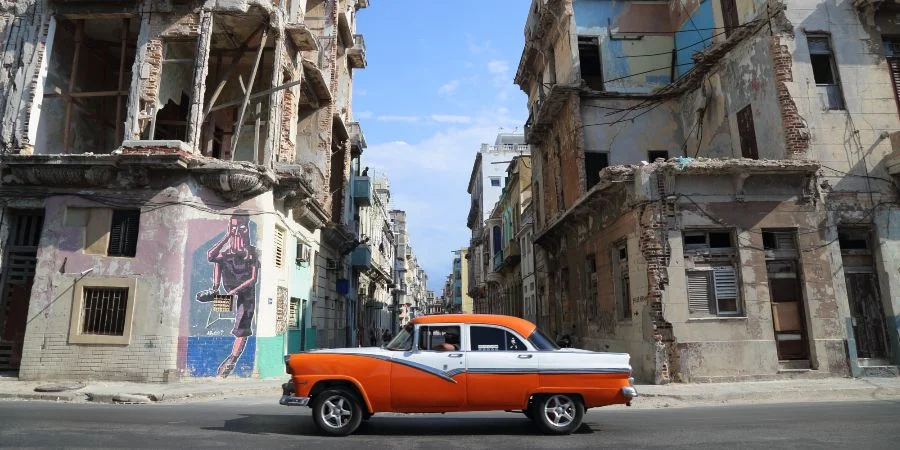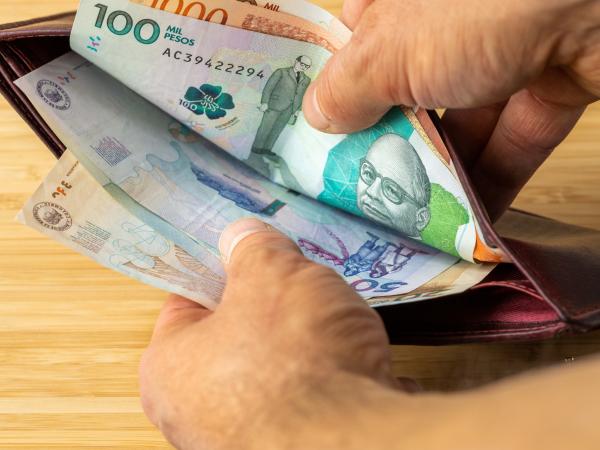HAVANA, Cuba. – With the main indicators in negative numbers and, despite this, undertaking a harsh offensive with political background against a private sector that only in 2021 seemed like the solution to the debacle caused by decades of general stateization and bureaucratism, 2024 has been a year of marked setbacks for the Cuban economy.
The regime has not said it in those terms but, on the other hand, has had to admit the failure of the plan to “reboost the economy” almost at the gates of 2025 and without being clear what concrete actions it will undertake – in addition to the massive march in front of the United States embassy in Havana—, to overcome a multifactorial crisis and a situation of multisystemic poverty that, due to the depth reached, has perhaps already become insurmountable.
Just in mid-November the main media outlets directed by the Communist Party of Cuba (PCC) announced that the national economy would contract again, no longer due to the resounding failure of the salvation strategies practiced since before 2019, which they first sought ” order” and more recently “correct distortions”, nor for the corruption and “errors” that have resulted in several dismissed high officials – among them the so-called “tsar of reforms”, then the president of the Bank Central, later the Minister of Economy and, finally, one of the deputy prime ministers—but as a consequence of the total blackouts, hurricanes and earthquakes that occurred in the second half of this year. But, in recent days, during the IX Plenary Session of the Central Committee of the PCCthe regime ended up admitting the failure of its economic plan to “reboost the economy” after a year of its implementation.
The physical signs and marks of the fall have been too overwhelming to deny. The images of widespread poverty are not limited to completely unstocked shops and pharmacies, increased begging among children, the elderly and the sick, dark and desolate streets as a result of blackouts and lack of fuel for transport, but also include the mass exodus, the increase in crime, the mountains of garbage on the corners, the immense lines—more like crowds—in those few places where the prices of food and basic necessities, although equally marked by inflation, they are more affordable for the generality of extremely low salaries and pensions.
For example, according to recently published figures, despite the fact that the devaluation of the Cuban peso (CUP) reached a record of more than 1,300 percent between 2020 and 2024 (all references, except where otherwise indicated, are taken from the Center for Studies of the Cuban Economy, Reports on the Cuban EconomySeptember 2024; as well as data published by ONEI), the average monthly salary on the Island remained at 4,648 CUP (about 14 dollars at the street exchange rate), while supposedly “priority” sectors in Castro’s discourse such as health, education, communal services, culture and agriculture once again fell below that average. Without talking about social security, retirees, aid to victims and people with disabilities who are practically in a state of total abandonment, while the income of the majority does not manage to exceed 20 cents a day, in a context where a pension is barely enough to choose between buying three pounds of sugar or five pounds of rice on the informal market, nothing more.
So, for that majority of Cubans who live on a state salary or pension, 2024 has been a year of famine and desperation, very similar or perhaps worse than the 1990s—the so-called euphemistically “Special Period”— when diseases due to malnutrition severely hit a population that, just as now, has been forced to emigrate, either driven by hunger or political repression, or by both at the same time. In fact, official data show how serious the decline in food production is. It is spoken of decreases of more than 80 percent in the production of basic products such as rice, eggs, sugar and milk, a fall that has not been able to be compensated by imports since these fell by less than 50 percent, very below what was reported for 2023.
External debt and internal chaos
A famine that, if previously arrived due to the disappearance of Cuba’s status as a Soviet protectorate, today breaks out as a consequence of a series of phenomena that includes delays in payments to foreign suppliers, non-compliance with contracts, bureaucratic obstacles and, In addition, the policy of encircling the private sector, which is prevented from participating on equal terms and rights with the state institutions and companies that govern foreign trade, may lie in the freedom of individual entrepreneurship as the key to evading the restrictions of the American embargo that the regime repeatedly uses as a pretext to justify the inability of the Government, on the one hand, and the lack of will for an opening or political change.
Thus, to date and despite forgiveness, postponements and renegotiations, Cuba’s foreign debt is growing rapidly and, as a consequence, eliminates any possibility of integrating into international financing and credit mechanisms, which does not bode well for the coming years. , much less with the return of Donald Trump to the White House, this time surrounded by a team of experts on the political situation on the Island.
Added to the above is the lost credibility, largely due to the process still pending in London. On November 20, the United Kingdom Court of Appeal rejected the appeal of the National Bank of Cuba against the CRF investment fund that claims 72 million euros in sovereign debt derived from loans signed in the 1980s.
Only with the main creditors, grouped in what is known as the Paris Club, in 2024, the regime accumulates a debt that represents more than 15.7 percent of the total debt. And although in September 2023, during the annual visit that the representatives of the Paris Club made to Cuba, the communist regime reiterated its willingness to honor the debt, the reality is that until these final days of 2024 no payment has been made to the creditors.
Until 2023, Cuba’s debt with the European entity amounted to almost 30,000 million euros, of which 259 million correspond to sums officially granted by institutions, and more than 4,360 million that are unofficial development aid. It is necessary to remember that, just in 2015, the Paris Club forgave 8.5 billion dollars of the 11.1 billion dollars accumulated up to that point since 1986. Today that figure has almost tripled, making the Cuban debt the second largest in all of Latin America and the Caribbean.
Blind tourism and other lost bets
To non-payments, non-compliance with exports, the reduction of imports due to lack of money, almost zero production including the sugar harvest at its worst moment in the last century, the mass exodus, shortages, blackouts, natural phenomena , the deterioration of the purchasing power of salaries and pensions, added to the lack of credits, the high fiscal deficit and the sudden fall of three of the great bets of the Cuban economy: the Development Zone of Mariel (which does not even remotely report the income and benefits planned when it was conceived), the commercialization of medical services (an “exportable resource” that today faces serious accusations of labor exploitation) and tourism (with a behavior far removed from the positive indicators that other destinations in the region report).
If 2023 closed with a fulfillment of only 85 percent of the plan, this being only 51.6 percent of what was achieved in 2019, in 2024 the figures are not the best, forecasting a drop of 16 percent compared to 2023 The goal of reaching 3 million visitors was rated as “impossible” even in the official media, after the National Office of Statistics and Information (ONEI) published the data obtained until October, when 2 million 490,000 travelers were reported, including Cubans residing abroad, who are the third group in importance after the markets of Canada and Russia.
Despite the above, according to data from the ONEI, investments in tourism, especially the construction of new hotels, have once again greatly exceeded state budget expenditures in sectors such as health and education in 2024. food production and housing construction, but above all they inexplicably exceed the figures destined for the modernization of the country’s basic infrastructure and especially the National Electroenergy System which, for yet another year, has collapsed again on several occasions, causing serious damage to the economy and, above all, scaring away the few tourists who arrive and end up disappointed by the poor quality product for which they have paid more than it is worth.
Thus, the growth goal announced at the beginning of 2024 of 2 percent, later rectified by ECLAC and lowered to 1.3, is now close to zero, and possibly the final balance makes the decrease evident but, above all, the setbacks and lurches that have characterized the economic policies of a Government that makes no secret of saying that its priority, and the solution to its problems, is in perfecting political-ideological work.















